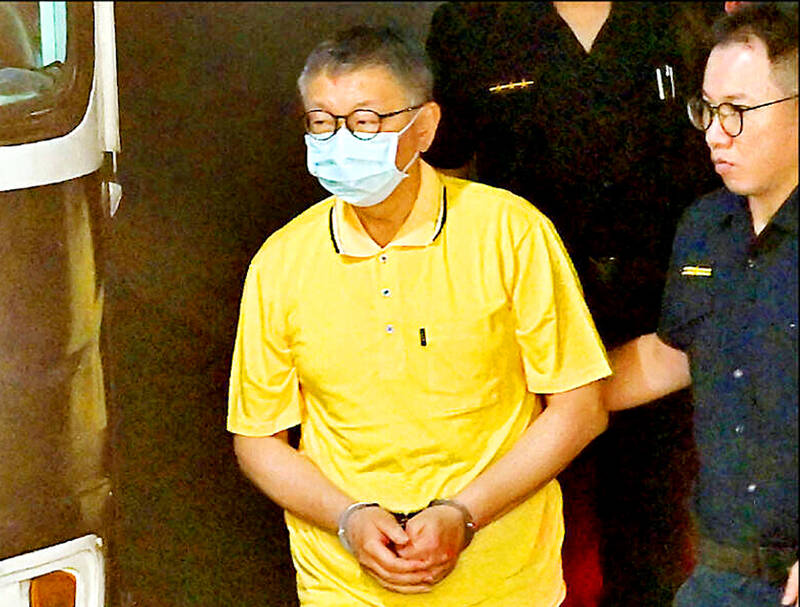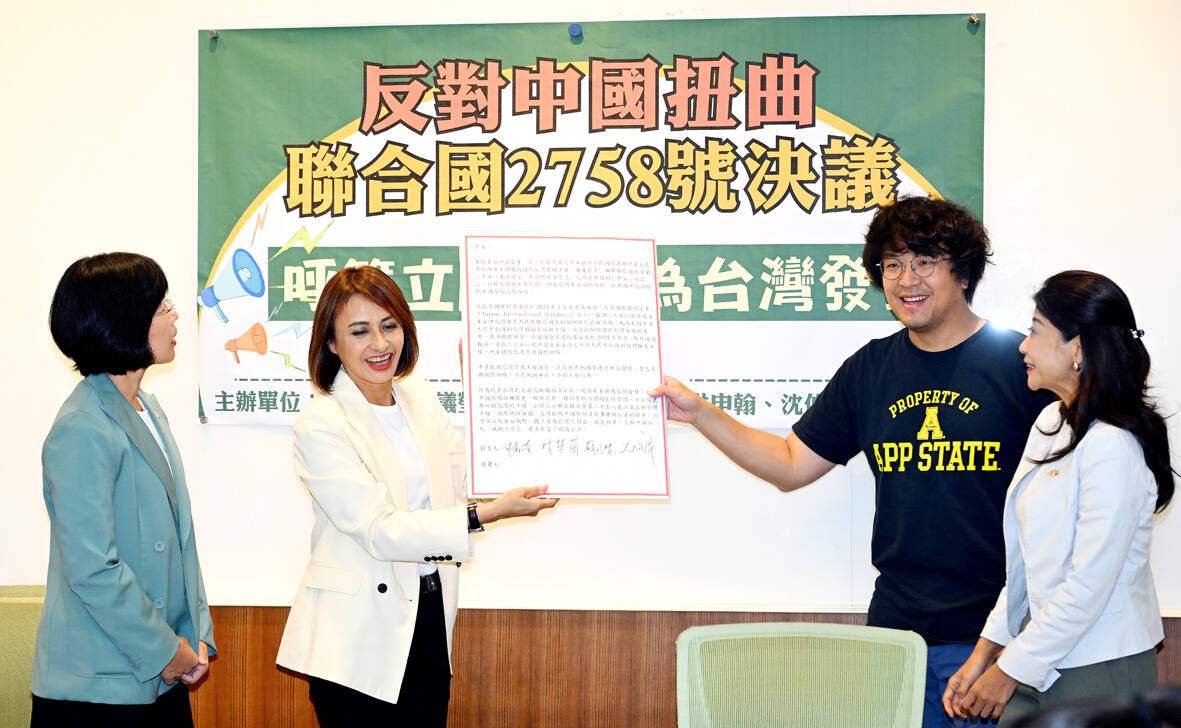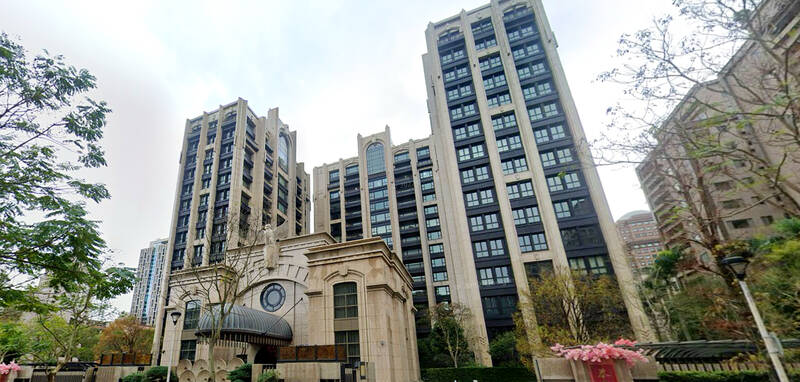In recent weeks news outlets have been reporting on rising rents. Last year they hit a 27 year high. It seems only a matter of time before they become a serious political issue. Fortunately, there is a whole political party that is laser focused on this issue, the Taiwan Statebuilding Party (TSP). They could have had a seat or two in the legislature, or at least, be large enough to attract media attention to the rent issue from time to time. Unfortunately, in the last election, Taiwan People’s Party (TPP) Chairman Ko Wen-je (柯文哲) acted as a vote sink for independent voters and protest votes against the two major parties, shriveling support for smaller parties. The TSP did not win a seat in the Legislative Yuan, and lost its status as a national party.
Now there is no voice for the rent issue, since none of the three major parties in the legislature appear to care about it. Two other parties that might have made rising rents an issue among the many social issues they embrace, the New Power Party (NPP) and Green Party, also took no seats, thanks in part to Ko. This was a double disaster, since on many issues the TSP, Greens and NPP would be voting with the pro-Taiwan side in the legislature, while Ko’s party has become little more than a shadow of the Chinese Nationalist Party (KMT) and its pro-China agenda. Effectively, Ko has delivered all his voters to Beijing.
This was highlighted last week during a conference between the TPP, KMT and DPP in which the latter called on the other two parties to create a cross-party narrative to support the fact that UN Resolution 2758 only permitted the People’s Republic of China (PRC) to represent China in the UN, and said nothing about Taiwan’s status. The TPP and KMT walked out before the DPP representative finished proposing the idea. As commentator Marcin Jerzewski pointed out, the TPP’s walkout was mystifying, since the TPP is a member of the Interparliamentary Alliance on China, which is making an effort to call out Beijing’s abuse of UN Resolution 2758.

Photo: Taipei Times file photo
TPP IN DECLINE
Public surveys since Ko’s arrest for alleged corruption show that support for the party has dropped to only 13 percent. Several commentators have expressed surprise that it has not collapsed. This is partly because Ko’s following is cultish, and partly because TPP party support has been in decline for most of the last year. It simply has nowhere to “collapse” to, because it is already low and trending downward. Months ago the public simply gave up on it once it revealed itself to be a handmaiden of the KMT.
The travails of the TPP, NPP, Green Party and other would-be spin offs and upstarts show that the nation faces severe structural impediments to the development of a viable third party. The blue (KMT) and green (DPP) frame, which everyone hates, is imposed on Taiwan by the PRC. There is no space between the PRC demand for submissive alignment, and support for Taiwan. Since no party can be neutral towards a death threat, inevitably any new party will become caught up in the blue-green structure. Ko’s vacillations between blue and green positions on the PRC demonstrate how this works.

Photo: Liao Chen-huei, Taipei Times
The second problem that any new party faces is the KMT’s (and to a lesser extent, the DPP) lock on local factions. The TSP itself was given a taste of this, when its only legislator, who in 2020 won in a Taichung seat that had long been the fief of a powerful local faction, was eventually replaced with a local politician from that faction. The TPP, for all Ko’s success in the January election, won no legislative seats. Its legislators are all legislators-at-large, and outside of northern Taiwan it ran few candidates. Building a nationwide local ground game is a formidable challenge in such an environment. Even for the long-established DPP, it remains a challenge.
NEW THIRD PARTY?
Researcher Austin Hong-en Wang (王宏恩) observed in a Sept. 6 piece at The Diplomat that recent analyses he has done indicate that a permanent pool of non-aligned voters has emerged in Taiwan, which an independent party could grab. That disengaged voter base, Wang described, consists of people who live in “urban areas with high levels of education, higher incomes, more young people and a higher proportion of renters,” who are “repelled” by the KMT and DPP.

Photo: Hsu Yi-ping, Taipei Times
Wang’s findings reinforce what local political analyst and Taipei Times’ columnist Courtney Donovan Smith has been saying about this group for years. On Twitter scholar and commentator Sung Wen-ti (宋文笛), reviewing surveys of party support, remarked that “All three parties are plateauing. Disgruntled voters have nowhere else to go. If anybody wants to found a new party now is the time.”
Wang is upbeat about what a new third party could look like.
“I believe that when a new third-party emerges in the political arena, it won’t just rely on personal charisma but will present a fresh policy direction to gain the support of these anti-blue, anti-green voters,” Wang said.
We had that with the NPP, which, if it ever gets over its problems, could fulfill that dream. The other parties, including the Taiwan Solidarity Union (TSU), People First Party (PFP) and New Party, are dead or, like the TPP, formed around a single popular politician, rising and falling with him. That highlights another structural problem — parties tend to form around individuals, not issues.
As many of us predicted, Ko lacked the patience, organizational aptitude and humility to engage in long-term party construction. Taiwan lost a great opportunity for political growth when he turned out to be another populist fly-by-night. Under arrest for alleged corruption, he has likely reinforced the views of many disgruntled voters that all parties are the same: broken. Increased voter cynicism is bad for the nation, making it that much harder for a third party to establish itself among disaffected voters.
Sadly, Ko’s negative effects have not been confined to electoral politics. To blunt the effects of the corruption scandal, the KMT and TPP have attacked the judiciary. Although the cases against Ko have been brought by KMT politicians and are currently in the hands of the Taipei prosecutors, Ko has been claiming that the DPP is using the judicial system against him (nobody seems to ask why, if the DPP controls the judiciary, even a single KMT politician is walking around free). This cynical, corrosive politics summoned the PRC demon across the Strait, which chimed in to attack the DPP, saying it is conducting “green terror” against its political opponents, a KMT propaganda phrase it occasionally uses.
The judicial process against Ko is likely to drag out for years, leaving Ko with a final negative effect: he will continue to attract the attention of disengaged voters as long as he is not imprisoned, a last impediment to the establishment of alternative, more progressive parties.
Beijing must be delighted.
Notes from Central Taiwan is a column written by long-term resident Michael Turton, who provides incisive commentary informed by three decades of living in and writing about his adoptive country. The views expressed here are his own.

On April 26, The Lancet published a letter from two doctors at Taichung-based China Medical University Hospital (CMUH) warning that “Taiwan’s Health Care System is on the Brink of Collapse.” The authors said that “Years of policy inaction and mismanagement of resources have led to the National Health Insurance system operating under unsustainable conditions.” The pushback was immediate. Errors in the paper were quickly identified and publicized, to discredit the authors (the hospital apologized). CNA reported that CMUH said the letter described Taiwan in 2021 as having 62 nurses per 10,000 people, when the correct number was 78 nurses per 10,000

As we live longer, our risk of cognitive impairment is increasing. How can we delay the onset of symptoms? Do we have to give up every indulgence or can small changes make a difference? We asked neurologists for tips on how to keep our brains healthy for life. TAKE CARE OF YOUR HEALTH “All of the sensible things that apply to bodily health apply to brain health,” says Suzanne O’Sullivan, a consultant in neurology at the National Hospital for Neurology and Neurosurgery in London, and the author of The Age of Diagnosis. “When you’re 20, you can get away with absolute

May 5 to May 11 What started out as friction between Taiwanese students at Taichung First High School and a Japanese head cook escalated dramatically over the first two weeks of May 1927. It began on April 30 when the cook’s wife knew that lotus starch used in that night’s dinner had rat feces in it, but failed to inform staff until the meal was already prepared. The students believed that her silence was intentional, and filed a complaint. The school’s Japanese administrators sided with the cook’s family, dismissing the students as troublemakers and clamping down on their freedoms — with

As Donald Trump’s executive order in March led to the shuttering of Voice of America (VOA) — the global broadcaster whose roots date back to the fight against Nazi propaganda — he quickly attracted support from figures not used to aligning themselves with any US administration. Trump had ordered the US Agency for Global Media, the federal agency that funds VOA and other groups promoting independent journalism overseas, to be “eliminated to the maximum extent consistent with applicable law.” The decision suddenly halted programming in 49 languages to more than 425 million people. In Moscow, Margarita Simonyan, the hardline editor-in-chief of the